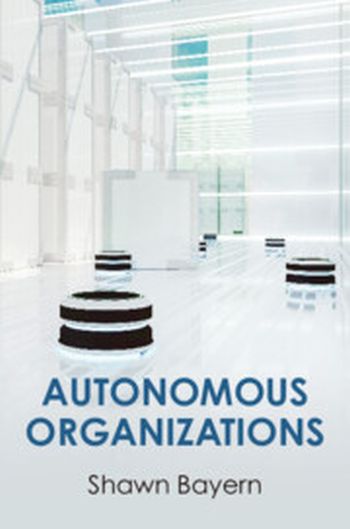
Under current business law, it is already possible to give legal personhood, or a very close surrogate of it, to software systems of any kind (from a simple automated escrow agent to a more hypothetical, truly smart artificial intelligence). This means that, for example, robots could enter into contracts, serve as legal agents, or own property. Ultimately, entire companies could actually be run by non-human agents. This study argues that this is not as scary as it might sound at first. Legal theorist and noted software developer Shawn Bayern argues that autonomous or zero-person organizations offer an opportunity for useful new types of interactions between software and the law. This creative contribution to the theory and practice of law and technology explores the social and political aspects of these new organizational structures and their implications for legal theory.